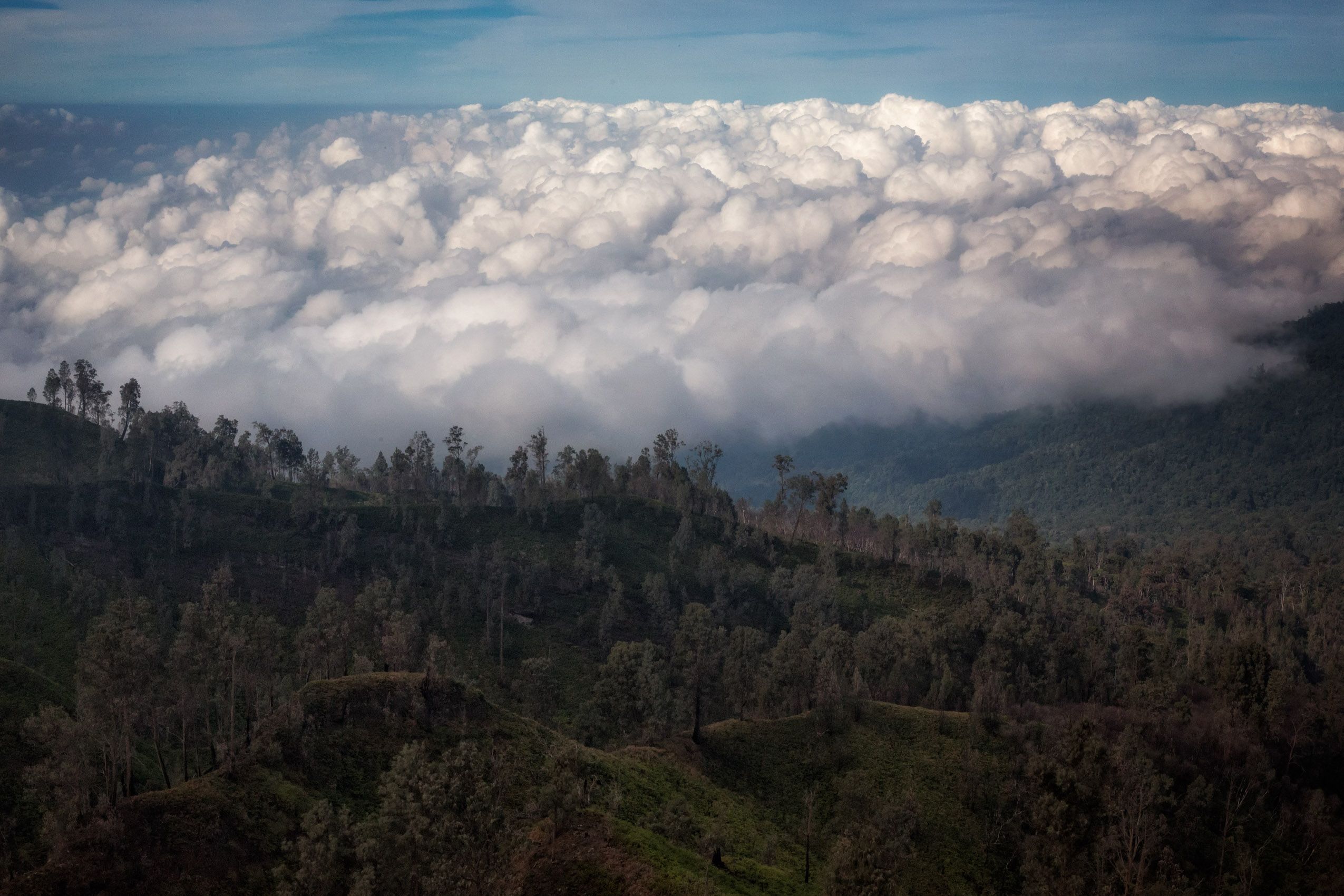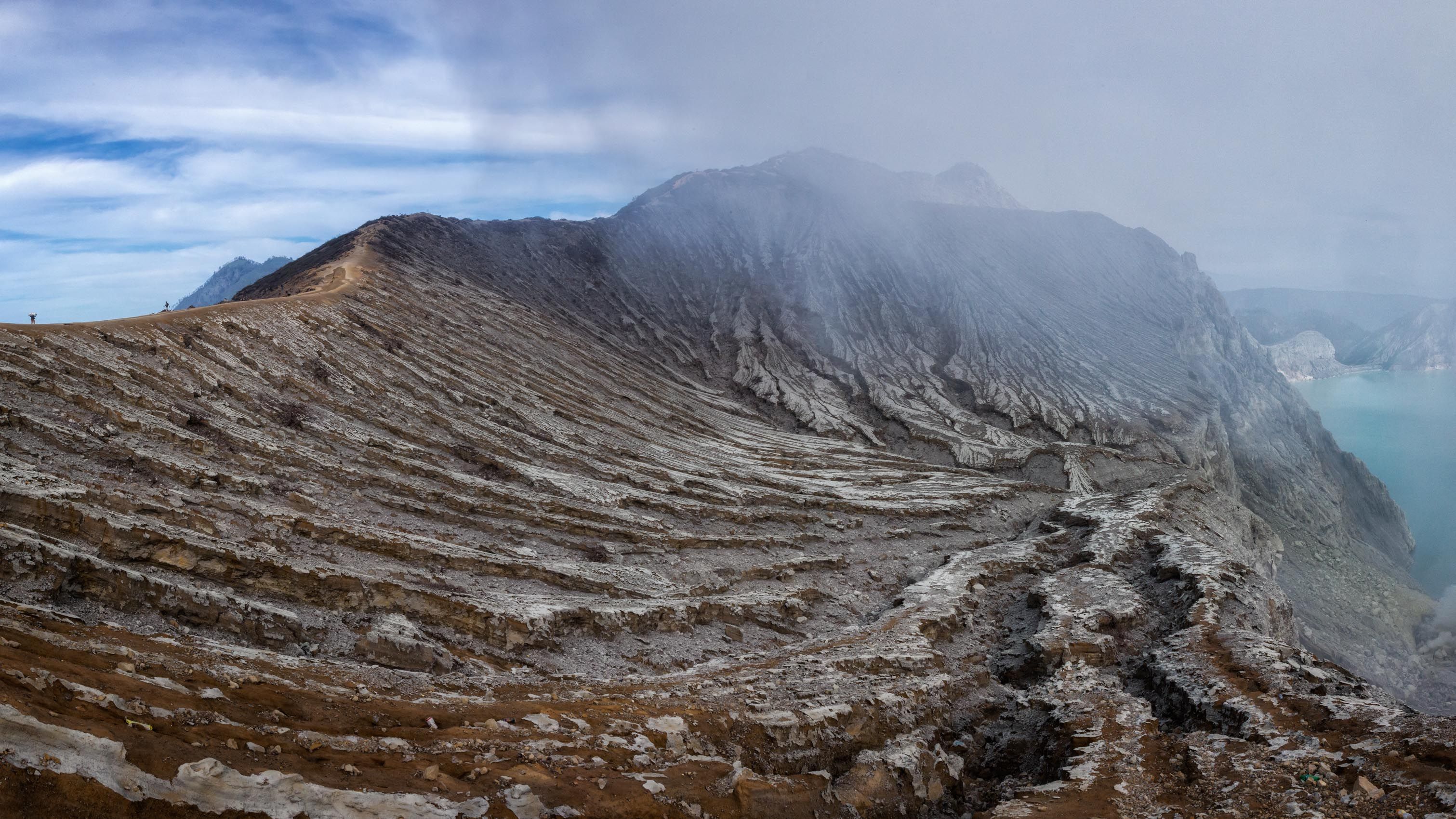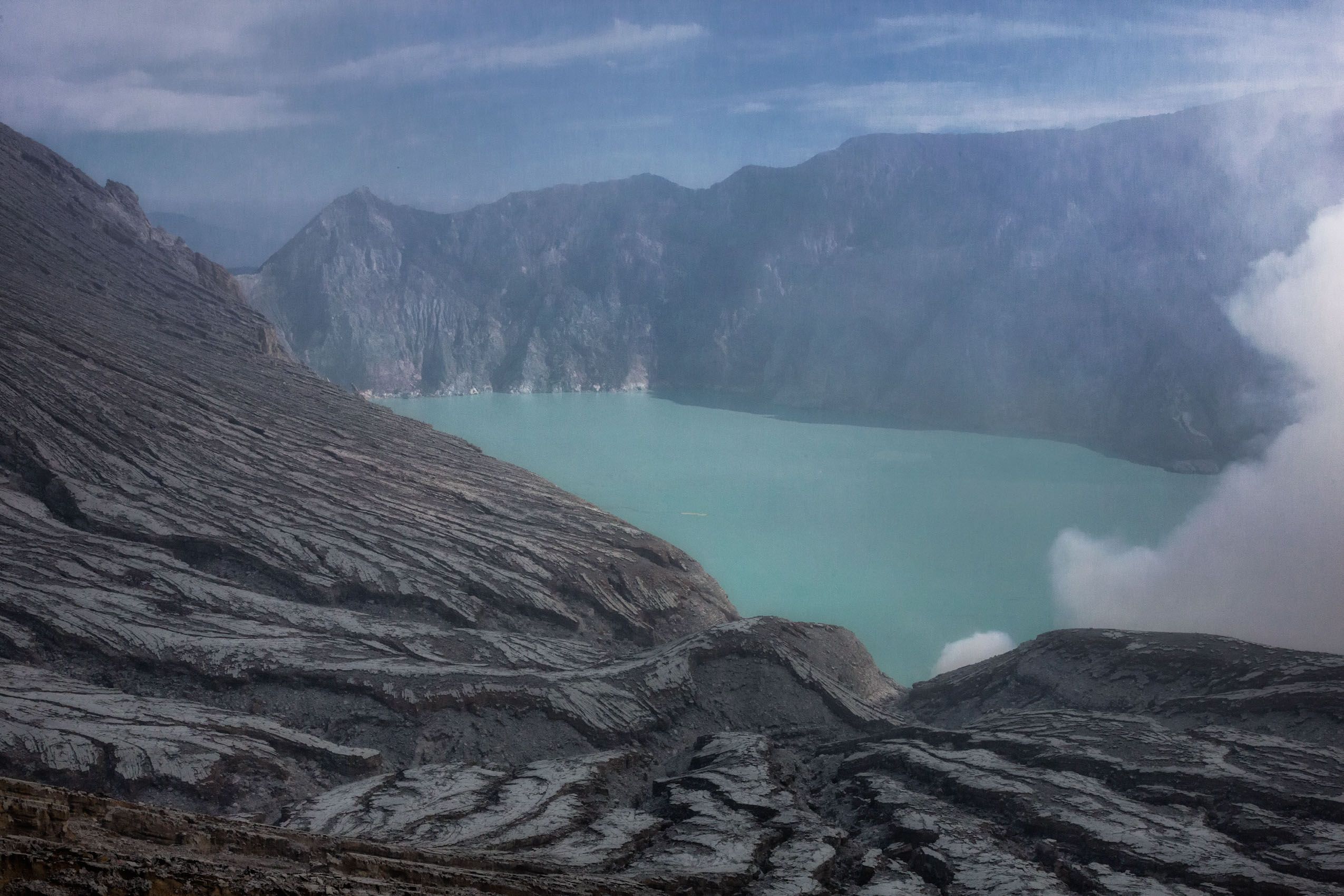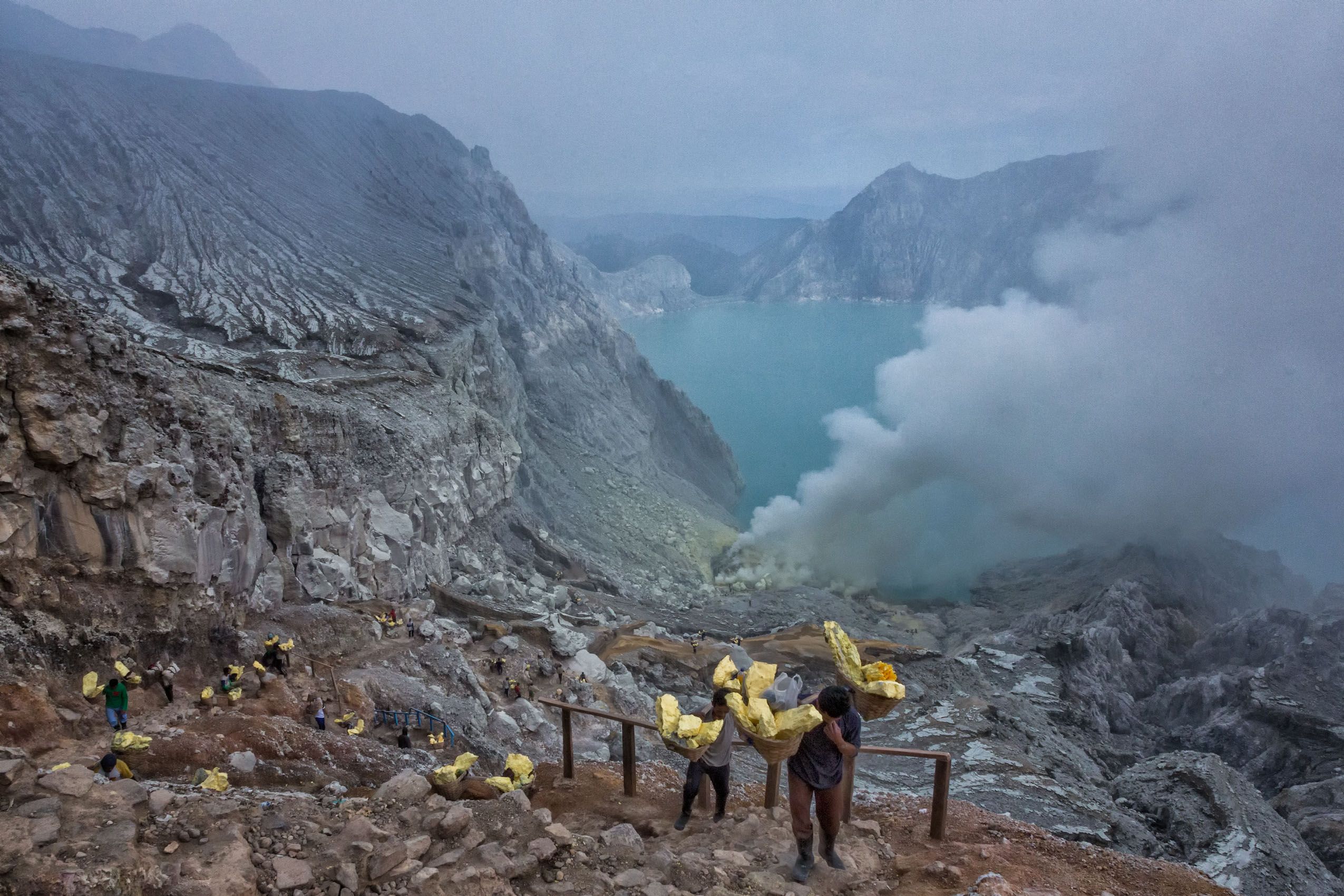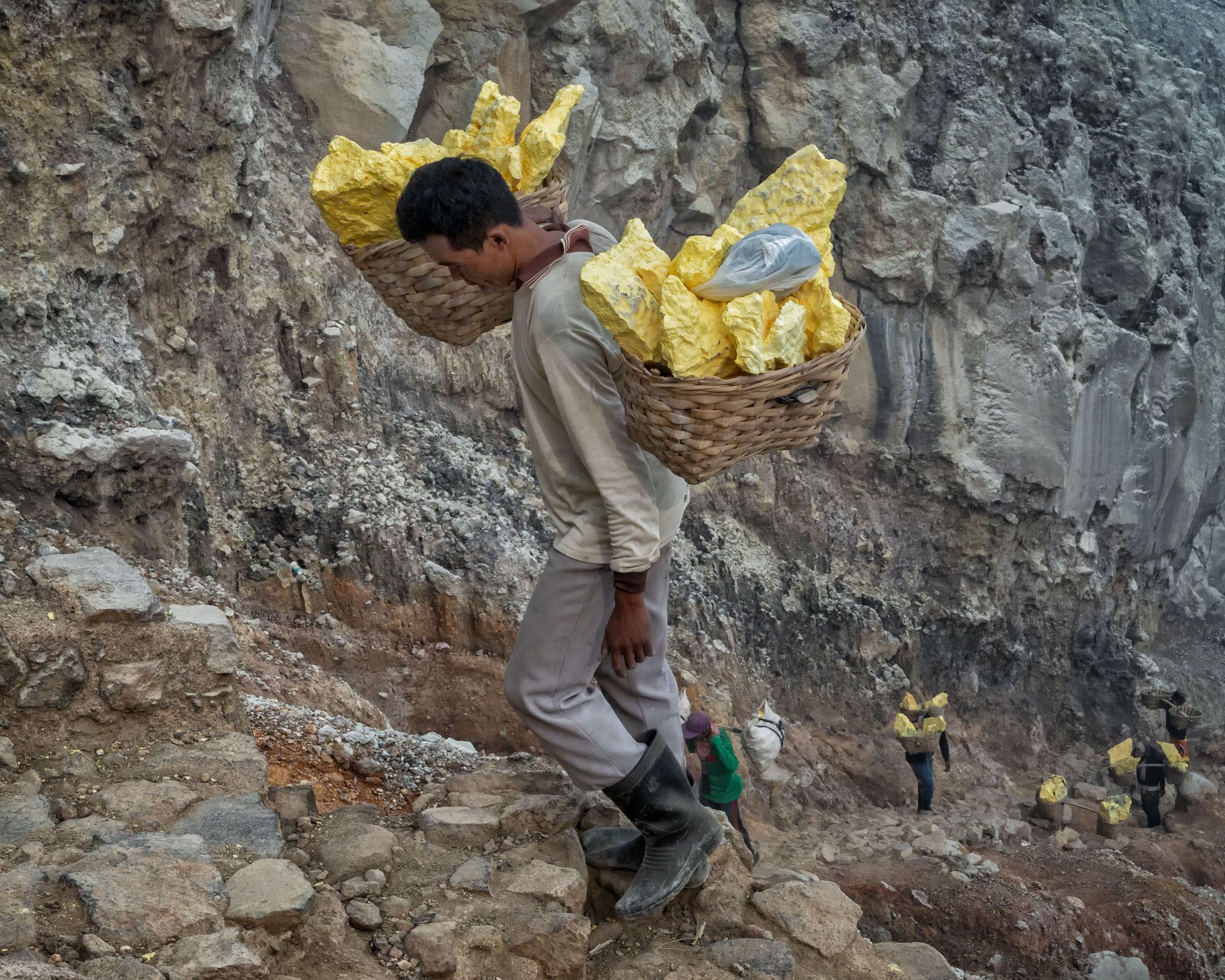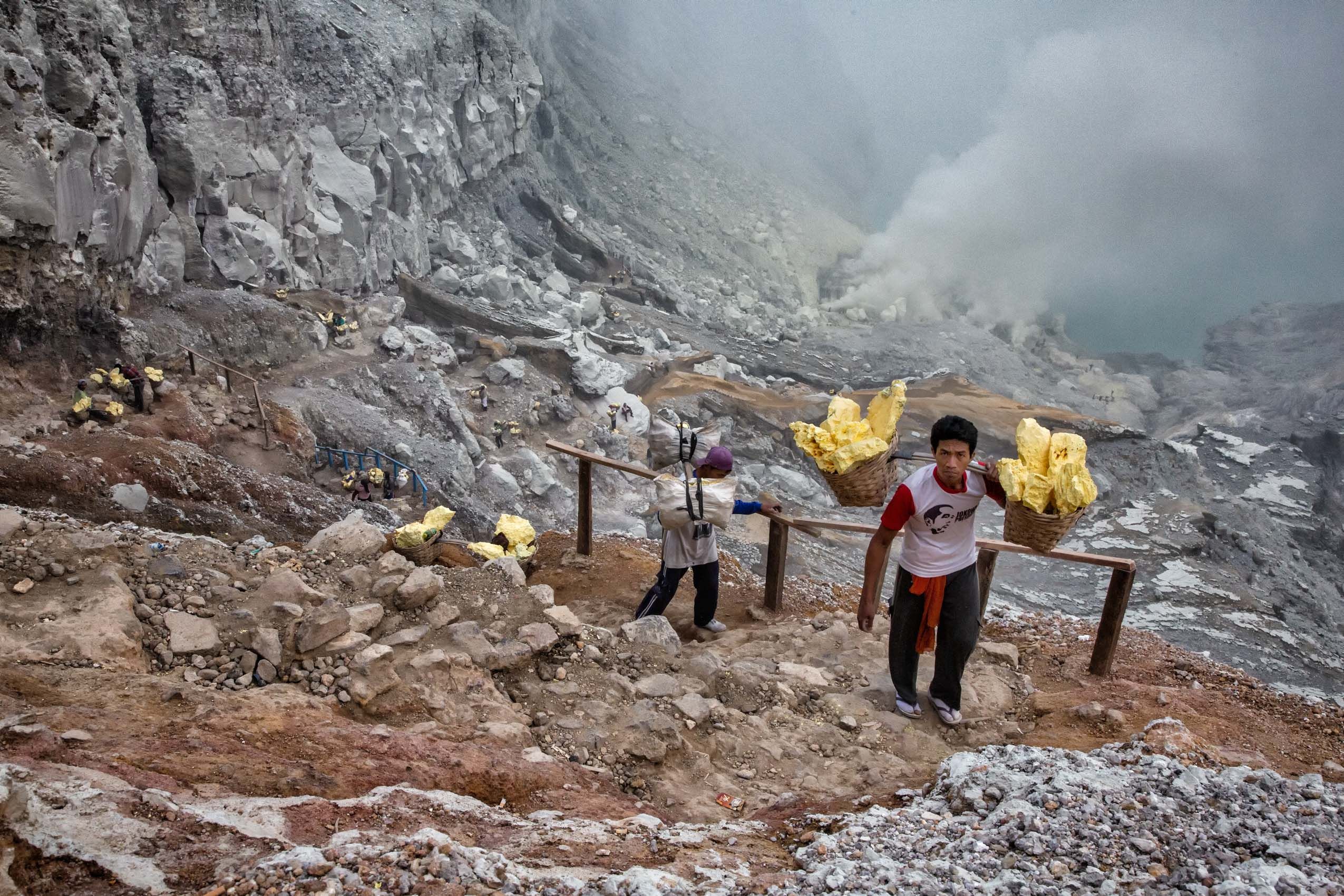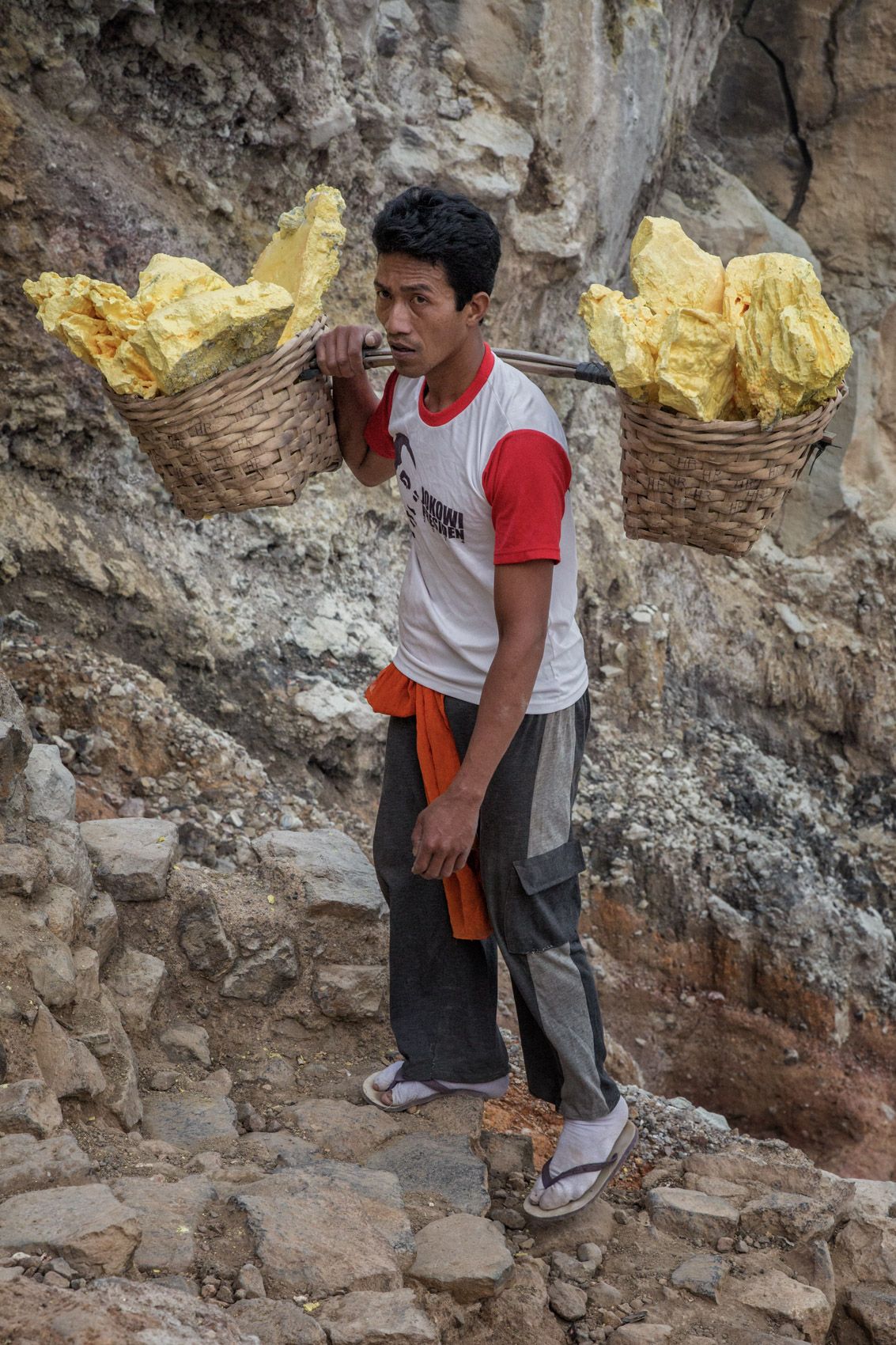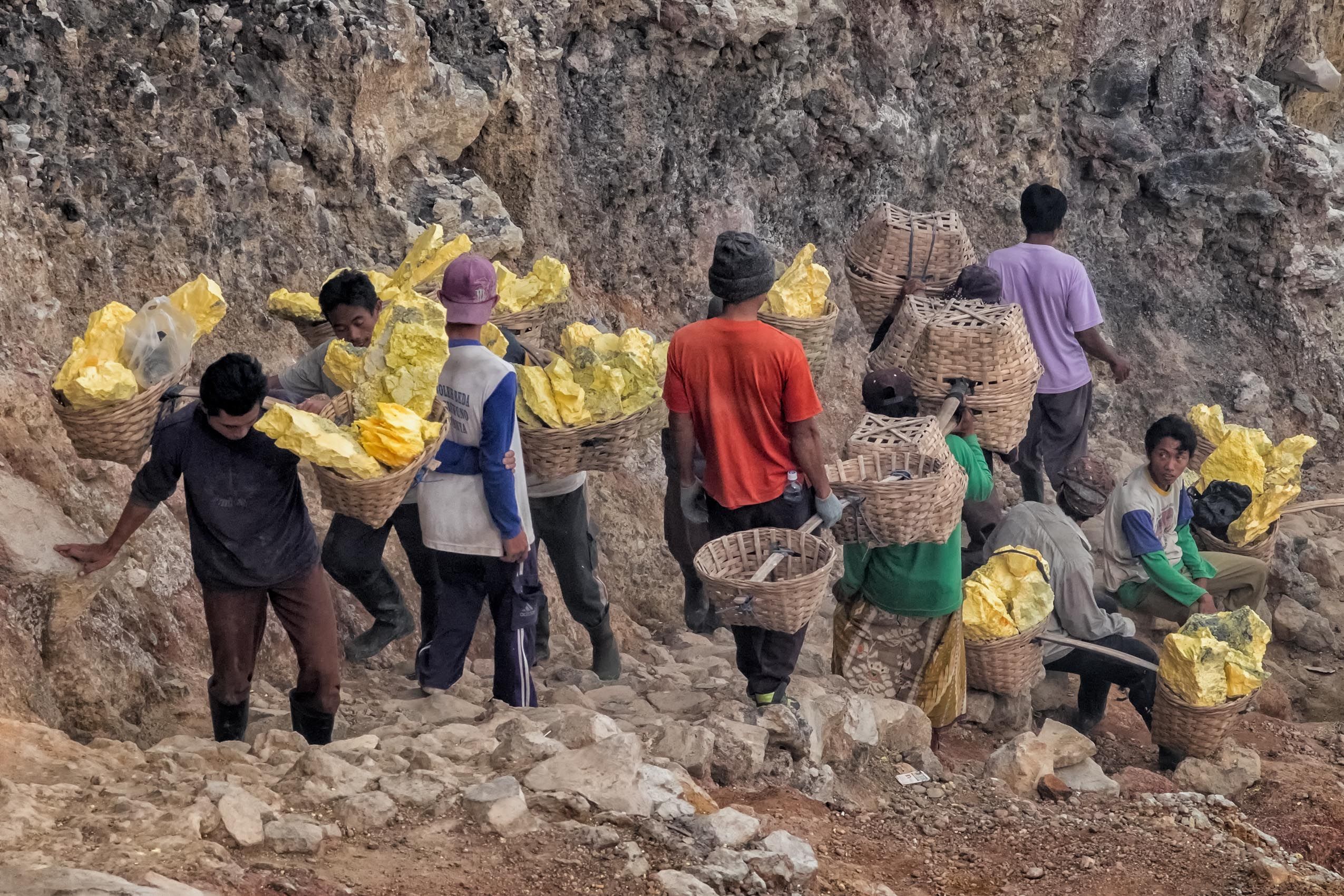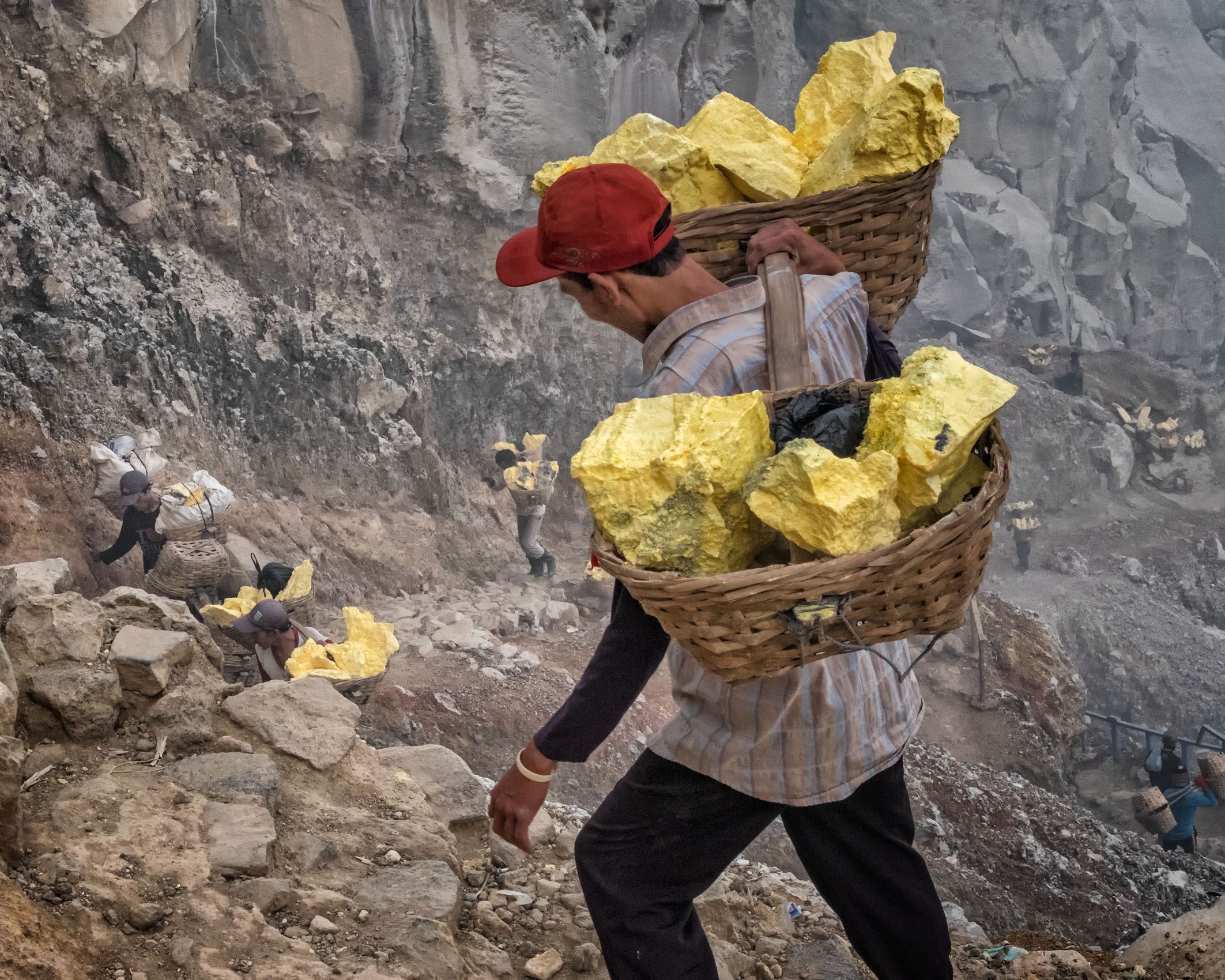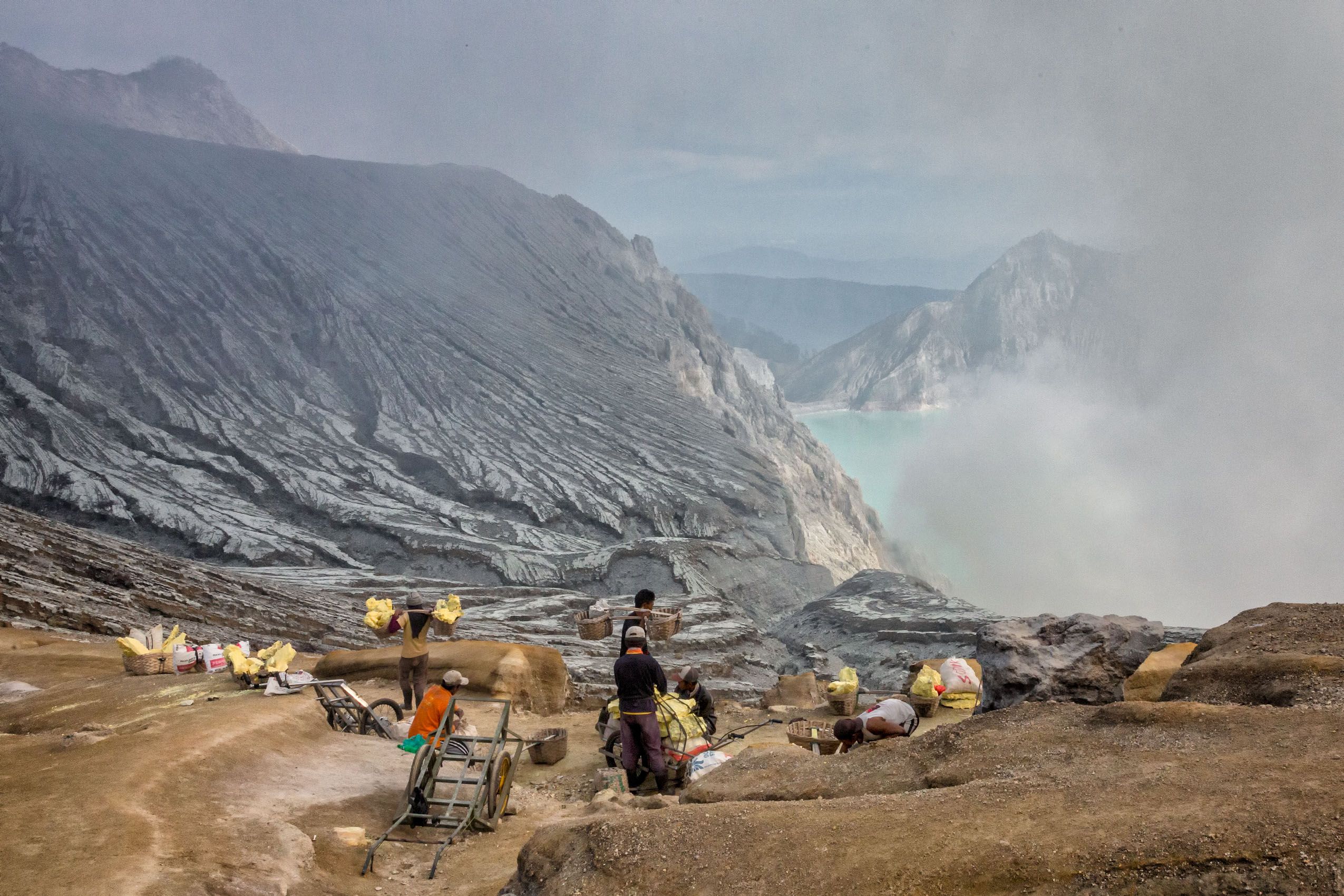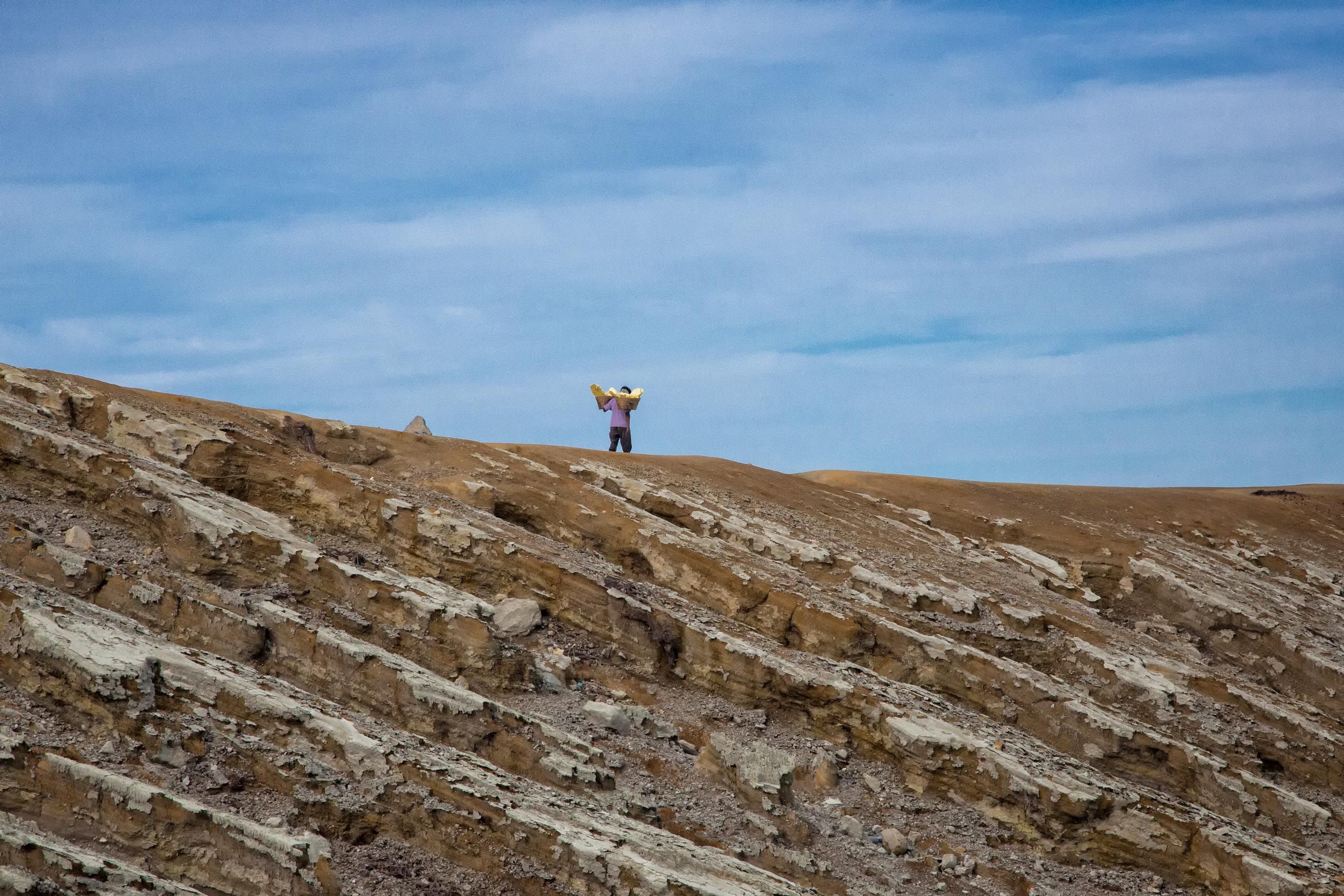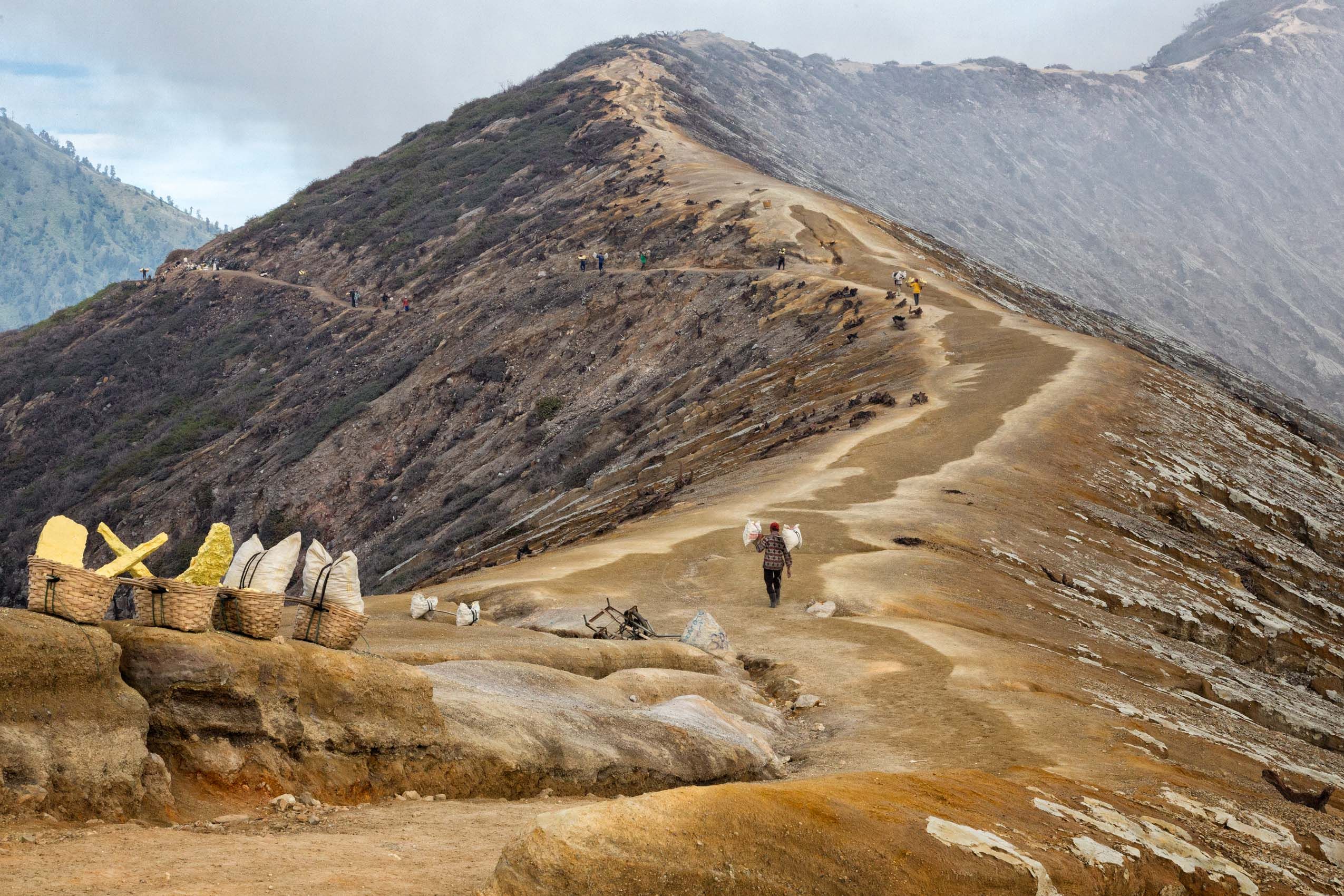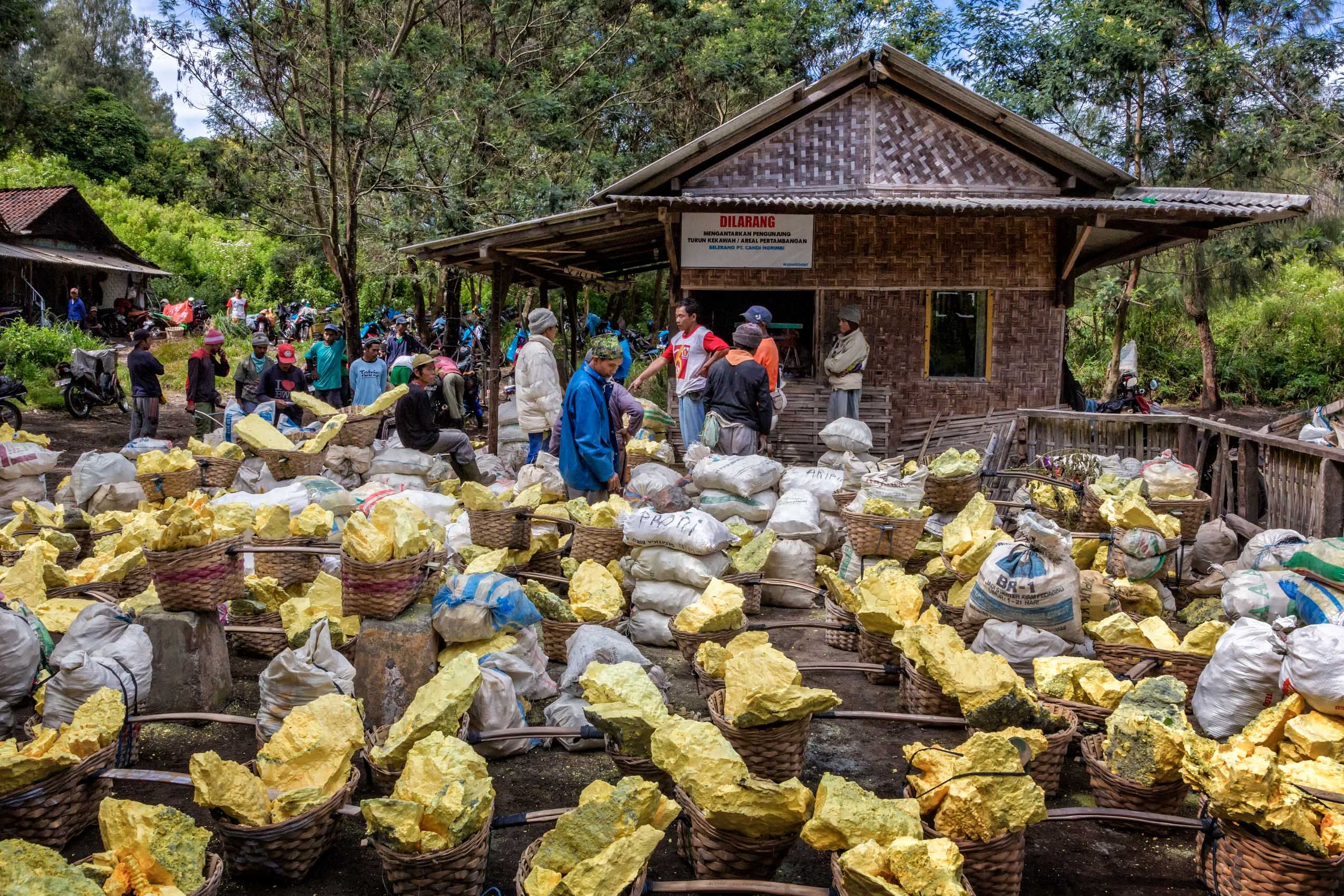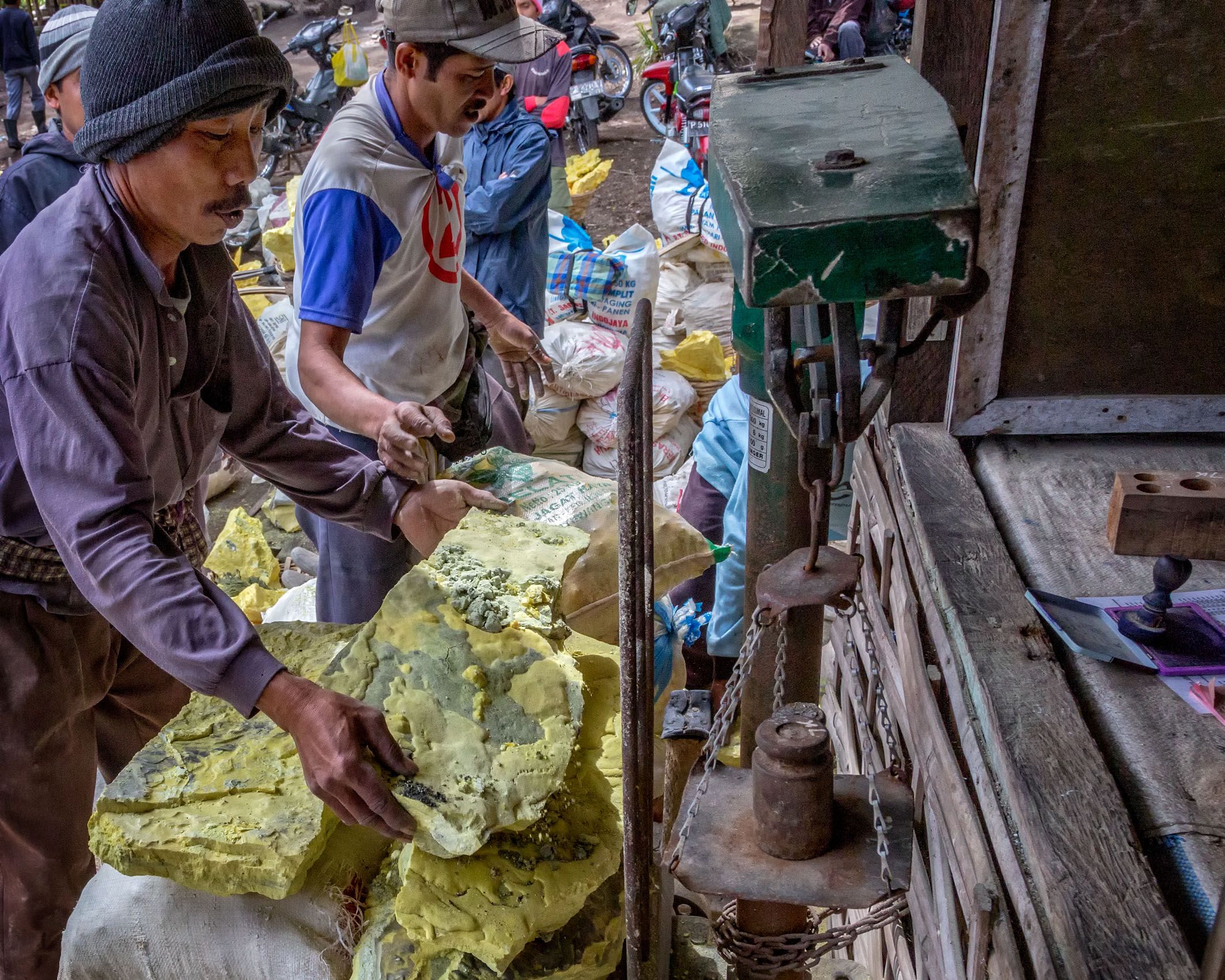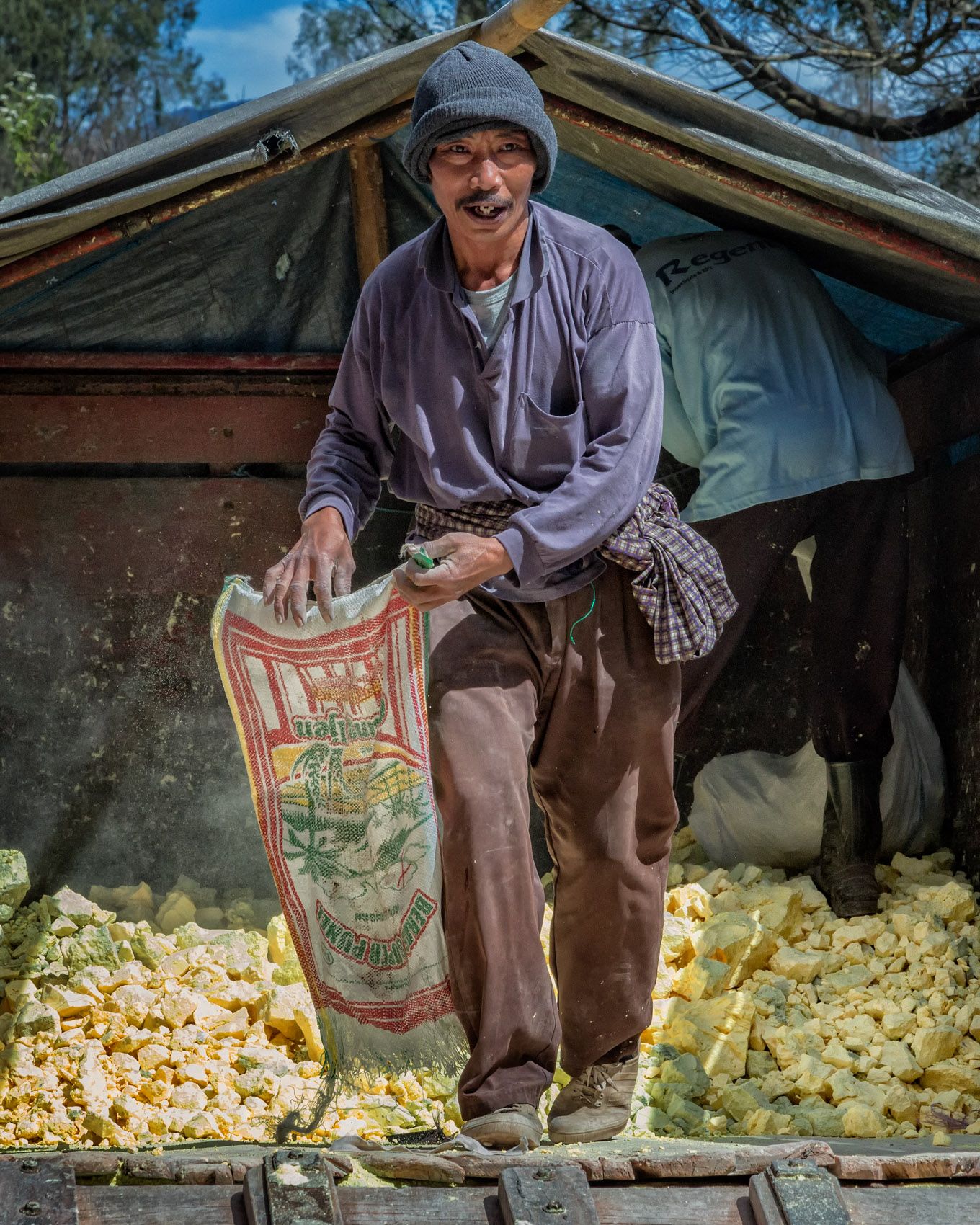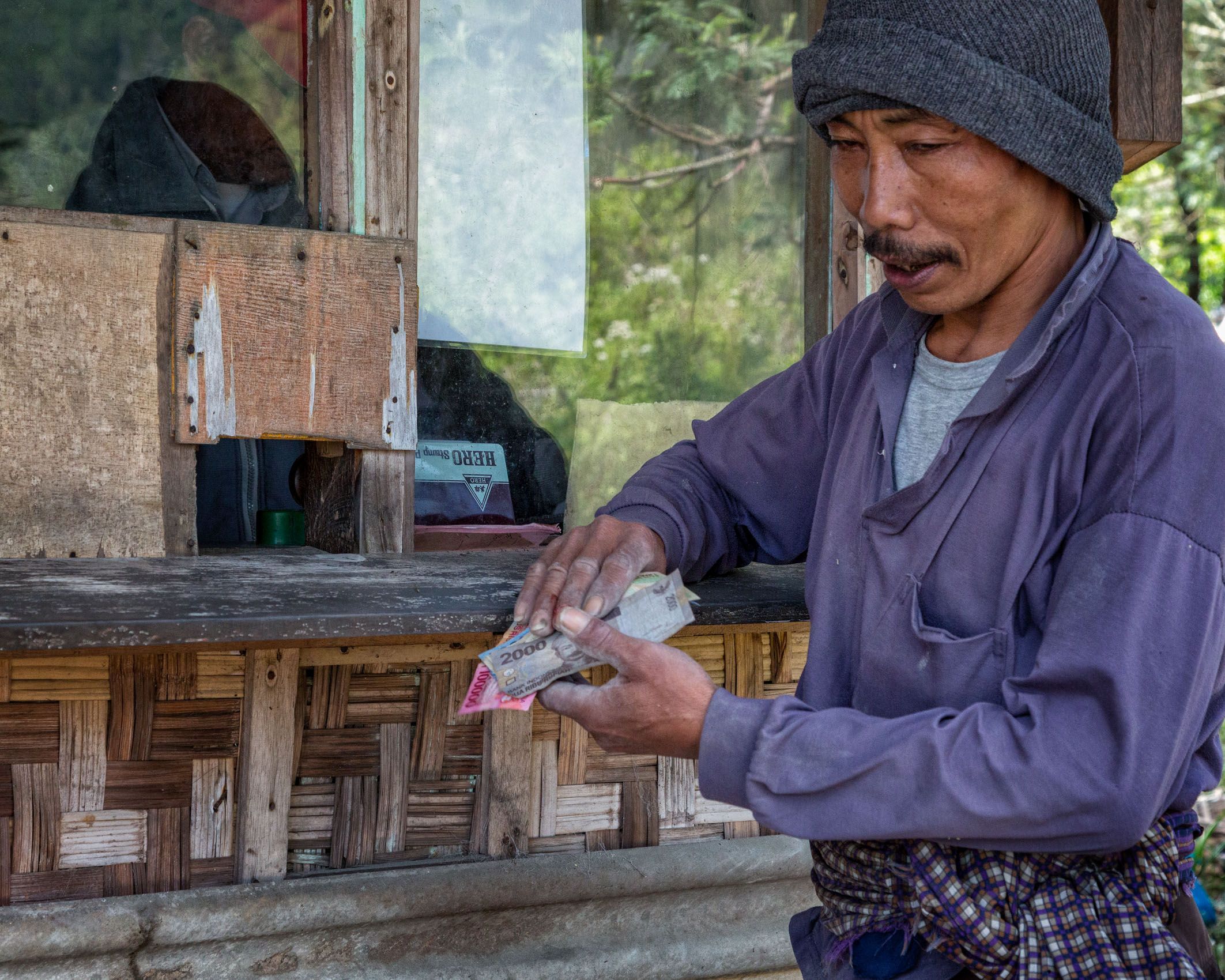INDONESIA: The Sulfur Miners of Ijen
The deeply forested flanks of Gunung Ijen, a 9000 foot high volcano in eastern Java, give no hint of what lies over the rim and within its crater: Kawah Ijen, a turquoise blue lake as deadly as it is beautiful—the largest acidic lake on earth, its waters having the toxicity of battery acid. What looks like steam rising from the fissures around the lake are actually potentially deadly volcanic gases. Into this hellish place hundreds of men descend daily to harvest the sulfur solidifying around these fissures. The bibilical brimstone, sulfur is a ubiquitous element in compounds but is rarely found in pure form on the earth’s surface except as it precipitates out of volcanic vents and fumeroles. It is used in sulfuric acid, insecticides, pharmaceuticals, matches, gunpowder, dyes, processing of textiles and paper, and even food preservatives. The sulfur miners of Ijen climb up the flank of the volcano, follow a trail along the rim, then descend a third of the way down inside the crater to the sulfur fields near the lake. With rarely any more protective gear than gloves on their hands and scarves around their faces, they break up the sulfur with metal sticks and pile large chunks into wicker baskets that are suspended from poles across their backs. Carrying as much as 200 pounds at a time, they make their way back up the treacherous crater slope and steeply down the volcano to the weigh station at the bottom where each man’s load is weighed and they are paid the equivalent of a few dollars for their labor. Some make this trip multiple times per day, up to six days a week. Over the years, many have died on site from inhaling toxic gases; most show signs of the physical toll in burns, deformities, corroding teeth, chronic coughs and short lifespans. Just about everywhere in the world where sulfur is mined had put an end to this kind of manual labor a century ago or more. It persists here in large part because it provides a relatively decent and steady income to men of the region who could not otherwise support their families.

